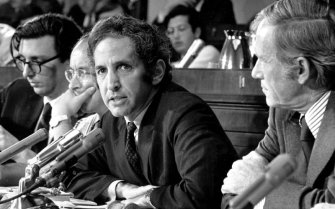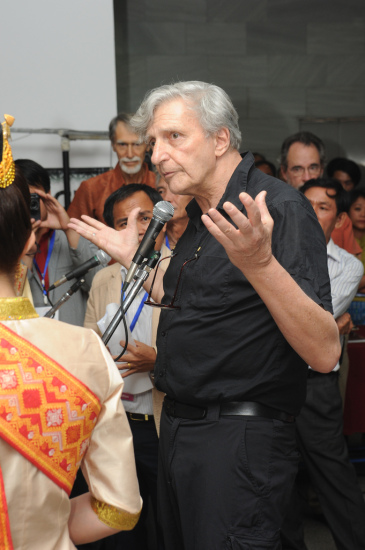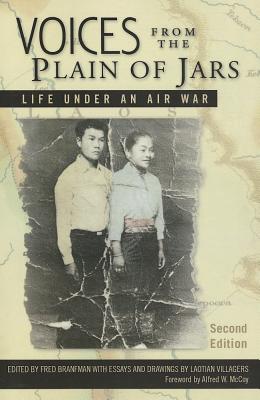Fred Branfman, writer and peace activist, passed away on September 24, 2014 at the age of 72 in Budapest.
Branfman wrote for the New York Times, the Washington Post, Harper’s, Playboy, Salon and the New Republic. But by far his most important publication was not the one he wrote himself. Instead, it is a compilation of text and images from peasants in Laos who suffered relentless bombing by the United States for close to ten years. The collection is called Voices from the Plain of Jars: Life under an Air War. Originally published in 1972, the book was recently re-issued.
In the introduction to the new edition, Branfman explained that he collected the stories after listening to someone from the Plain of Jars who had suffered the bombing:
I was thunderstruck. Seeing this subsistence-level innocent Lao farmer describing how he hid like an animal for months on end from bombers sent from a rich, comfortable distant land to burn and destroy his fellow villagers, family members, livestock and home, without him even knowing who was bombing him or why, and against whom he had committed no offense whatsoever, seemed to me then—and has seemed to me ever since—among the ultimate evils, lack of humanity, and horrors that I could possibly imagine.
In shock, I then interviewed over a dozen refugees. Every one gave the same basic report. The bombing had begun in 1964, gradually intensified year by year until, starting in late 1968, they were bombed daily. Villager after villager described seeing relatives and friends burned and buried alive, their livestock killed, their homes and pagodas demolished, living in holes for months on end, and their intense pain at being forcibly removed from the villages of their ancestors to wind up as penniless refugees in Vientiane. The main victims of the bombing, every refugee explained, were civilians—particularly older people, mothers and children who had to remain near their villages to survive. The soldiers moved through the deeply carpeted forests of northern Laos, and were relatively unscathed by the bombing. [Continue reading.]

Fred Branfman and Daniel Ellsberg on July 28, 1971, reporting to an unofficial House panel on the Pentagon Papers. At right is Rep. Don Edwards, D-Calif. Photo: Associated Press.
Branfman did all he could to shine a light on the devastating bombing and expose the U.S. government lies about its role.
In his final years, Branfman dedicated much of his attention to the threat of climate change. He was also interviewed for the 2008 documentary film, The Most Secret Place on Earth, by German director Marc Eberle.
Branfman wrote a moving essay about Noam Chomsky’s visit to Laos and also a tribute to Howard Zinn on his death. More of his articles can be found at Alternet.








Twitter
Google plus
LinkedIn